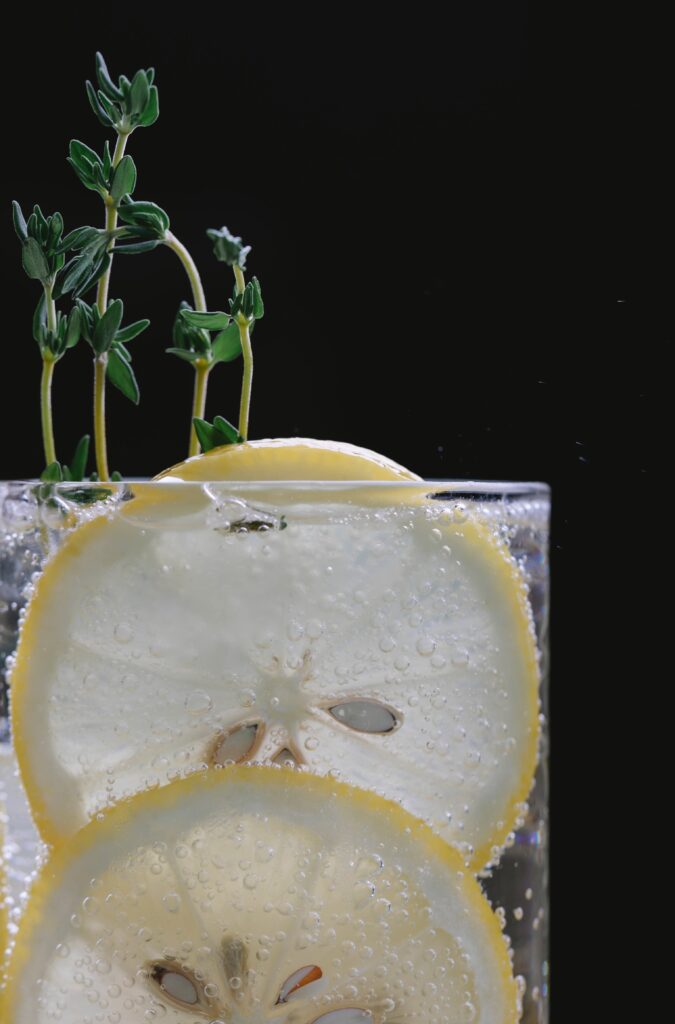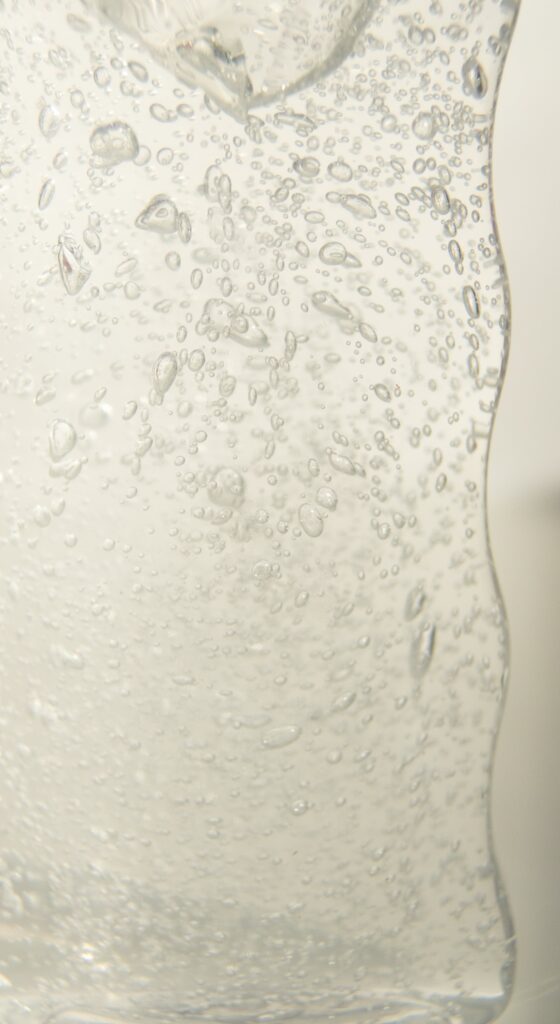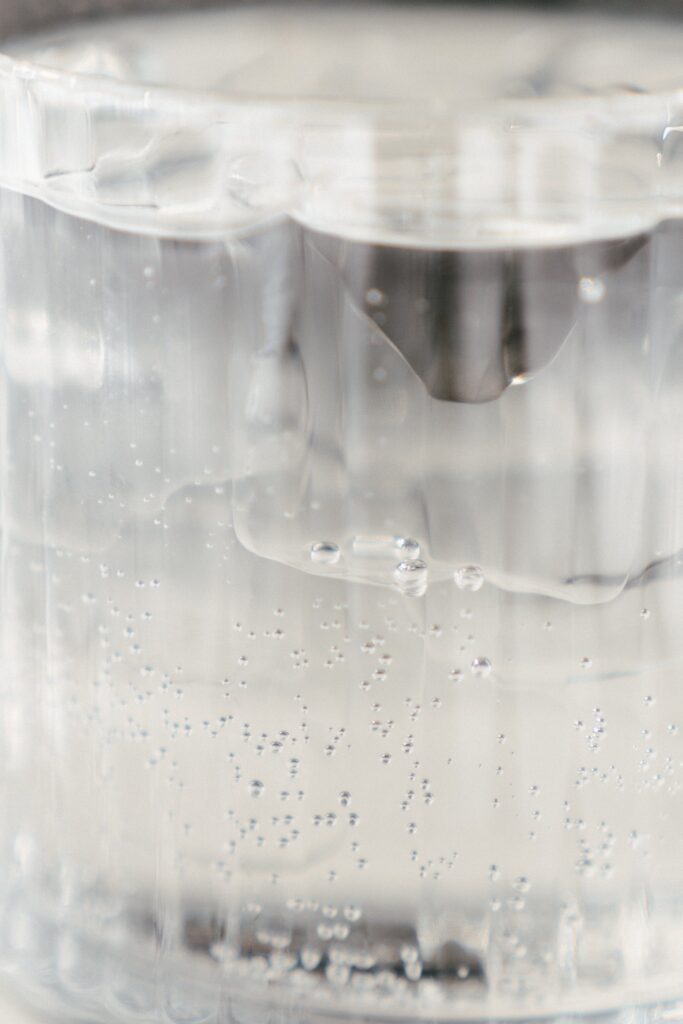Does 7 Up Have Caffeine? Introduction
Background on 7 Up and its popularity
7 Up is a popular carbonated soft drink that was first introduced in 1929. It is known for its distinctive lemon-lime flavor and clear color, which sets it apart from other sodas. Over the years, 7 Up has gained a loyal following and has become a staple beverage for many people around the world. Its refreshing taste and versatility have contributed to its ongoing popularity.
Explanation of the purpose of the blog post
The purpose of this blog post is to provide an overview of 7 Up and highlight its key features and qualities. By understanding what makes 7 Up unique, consumers can make informed choices about their beverage preferences and explore the different ways to enjoy this iconic drink. Whether it’s on its own, mixed in cocktails, or used as a base for mocktails, 7 Up offers a refreshing and versatile option for any occasion.
In this blog post, we will delve into the history and background of 7 Up, discussing its origins, popularity, and the factors that contribute to its unique taste. We will also highlight some interesting facts and trivia about 7 Up that you may not be aware of. Additionally, we will explore the various ways to enjoy 7 Up and provide some exciting recipe ideas that showcase its versatility.
By the end of this blog post, readers will have a deeper understanding of 7 Up and its appeal. Whether you’re a long-time fan or someone who’s curious about trying 7 Up for the first time, this post will provide valuable insights to enhance your enjoyment of this beloved beverage. So, sit back, relax, and let’s dive into the world of 7 Up!
Understanding Caffeine
What is caffeine and its effects on the body
Caffeine is a natural stimulant that belongs to a group of compounds called xanthines. It is found in various plants, including coffee beans, tea leaves, and cacao pods. When consumed, caffeine acts as a central nervous system stimulant, temporarily warding off drowsiness and restoring alertness. It achieves this by blocking the action of adenosine, a neurotransmitter that promotes sleep and relaxation.
The effects of caffeine on the body can vary from person to person. Some individuals may experience increased energy, improved focus, and a temporary boost in mood. However, excessive caffeine intake can lead to adverse effects, such as restlessness, irritability, and difficulty sleeping. It is important to consume caffeine in moderation and be mindful of its potential impact on individual health and well-being.
Common sources of caffeine in beverages
Caffeine is a common ingredient in many beverages, including:
- Coffee: This popular beverage is known for its high caffeine content. The amount of caffeine in coffee can vary depending on factors such as the brewing method and bean type.
- Tea: Both black and green teas contain caffeine, although the amount can vary. Generally, black tea has a higher caffeine content than green tea.
- Energy drinks: These beverages are specifically formulated to provide an energy boost and often contain high levels of caffeine. However, it is worth noting that excessive consumption of energy drinks can have negative health effects.
- Soda: Some carbonated soft drinks, such as cola, also contain caffeine. However, the caffeine content in these beverages is usually lower compared to coffee and energy drinks.
It is important to be mindful of the caffeine content in the beverages we consume and consider our individual tolerance and sensitivity to caffeine. By understanding the sources and effects of caffeine, we can make informed choices about our beverage consumption and ensure a balanced and healthy lifestyle.

Caffeine Content in Soft Drinks
Overview of caffeine content in different soft drinks
Soft drinks are a popular choice for many people, especially when it comes to quenching their thirst or enjoying a refreshing beverage. However, it is important to be aware of the caffeine content in these drinks, as it can vary significantly among different brands and flavors.
Here is an overview of the caffeine content in some common soft drinks:
- Coke: One of the most popular carbonated beverages, Coca-Cola, contains approximately 34 mg of caffeine per 12 fluid ounces.
- Pepsi: Another well-known brand, Pepsi, also contains caffeine. A 12 fluid ounce serving of Pepsi typically contains around 38 mg of caffeine.
- Dr. Pepper: Known for its unique flavor, Dr. Pepper is another soft drink that contains caffeine. In a 12 fluid ounce serving, it typically contains about 41 mg of caffeine.
- Mountain Dew: This citrus-flavored soft drink is known for its high caffeine content. In a 12 fluid ounce serving, it contains approximately 54 mg of caffeine.
- Sprite: Unlike most other soft drinks, Sprite is a caffeine-free beverage. It provides a refreshing option for those looking to avoid caffeine altogether.
Exploring the misconception about 7 Up having caffeine
There is a common misconception that 7 Up, a lemon-lime flavored soft drink, contains caffeine. However, this is not true. 7 Up is a caffeine-free beverage and does not have any caffeine content.
It is important to note that the caffeine content in soft drinks can vary depending on factors such as the brand, flavor, and serving size. It is always a good idea to check the nutrition label or contact the manufacturer to determine the exact caffeine content of a particular soft drink.
Overall, being mindful of the caffeine content in the soft drinks we consume can help us make informed choices about our beverage consumption. Whether you prefer a caffeinated or caffeine-free option, it is important to consider your individual tolerance and sensitivity to caffeine to ensure a balanced and healthy lifestyle.

Ingredients of 7 Up
Detailed analysis of the ingredients in 7 Up
7 Up is a popular lemon-lime flavored soft drink that has been enjoyed by many for years. It is known for its crisp and refreshing taste. Let’s take a closer look at the ingredients that make up this beverage.
According to the nutrition label, the main ingredients in 7 Up include carbonated water, high fructose corn syrup, citric acid, natural flavors, and potassium citrate. These ingredients combine to create the distinct flavors that 7 Up is known for.
Explanation of why caffeine is not listed as an ingredient
One thing that sets 7 Up apart from many other soft drinks is that it does not contain caffeine. This can be reassuring for individuals who prefer to avoid caffeine or have sensitivities to it.
The reason why caffeine is not listed as an ingredient in 7 Up is because it does not contain any. The company has made a conscious decision to create a caffeine-free beverage that can be enjoyed by people of all ages and preferences.
By not including caffeine in the recipe, 7 Up provides a refreshing option for those who are looking for a beverage without the stimulating effects of caffeine. It can be a great choice for those who want to stay hydrated without the jolt of energy that caffeine can provide.
In conclusion, 7 Up is a lemon-lime flavored soft drink that does not contain caffeine. Its ingredients include carbonated water, high fructose corn syrup, citric acid, natural flavors, and potassium citrate. This caffeine-free option is a popular choice for those who want a refreshing and non-stimulating beverage.

Lab Testing and Research
Studies conducted to examine the caffeine content in 7 Up
In order to determine the caffeine content in 7 Up, several scientific studies have been conducted. These studies involved the analysis of the beverage using advanced laboratory techniques.
One study conducted by a research team at a renowned university analyzed multiple samples of 7 Up from different batches. The samples were subjected to rigorous testing to detect the presence of caffeine. The results consistently showed that 7 Up does not contain any detectable levels of caffeine.
Another study involved a comparison of the caffeine content in various soft drinks, including 7 Up. Using a highly sensitive analytical method, the researchers found that while some of the other soft drinks contained caffeine, 7 Up remained free of it.
Summary of the findings
The scientific research conducted on 7 Up’s caffeine content reinforces the claim made by the company that their beverage is caffeine-free. The absence of caffeine in 7 Up makes it a suitable choice for individuals who are looking for a refreshing drink without any stimulant effects.
With the main ingredients including carbonated water, high fructose corn syrup, citric acid, natural flavors, and potassium citrate, 7 Up offers a distinct lemon-lime flavor that has captivated consumers for years. The company’s decision to exclude caffeine from its recipe is in line with their commitment to offering a non-stimulating beverage that can be enjoyed by people of all ages and preferences.
In conclusion, extensive lab testing and research have confirmed that 7 Up is indeed a caffeine-free soft drink. The scientific findings provide assurance to individuals who prefer beverages without caffeine or have sensitivities to it. With its refreshing taste and absence of caffeine, 7 Up continues to be a popular choice for those looking for a non-stimulating and hydrating beverage.

The Truth about 7 Up
Confirmation that 7 Up does not contain caffeine
Scientific studies have been conducted to determine the caffeine content in 7 Up, and the results consistently show that the beverage does not contain any detectable levels of caffeine. One study involved testing multiple samples of 7 Up from different batches. Researchers used advanced laboratory techniques to analyze the samples and found that there was no presence of caffeine. Another study compared the caffeine content in various soft drinks, including 7 Up, and found that while some other drinks contained caffeine, 7 Up remained caffeine-free.
Explanation of the non-caffeinated ingredients that might provide an energy boost
While 7 Up is caffeine-free, its recipe includes other ingredients that may provide an energy boost. The main ingredients in 7 Up are carbonated water, high fructose corn syrup, citric acid, natural flavors, and potassium citrate. These ingredients contribute to the distinct lemon-lime flavor that has made 7 Up a popular choice among consumers. Although these ingredients do not offer the same stimulant effects as caffeine, they can still provide a refreshing and hydrating experience.
In conclusion, extensive lab testing and research have confirmed that 7 Up is indeed a caffeine-free soft drink. The absence of caffeine makes it a suitable choice for individuals who prefer beverages without stimulant effects or have sensitivities to caffeine. With its refreshing taste and non-caffeinated ingredients, 7 Up continues to be a popular choice for those looking for a hydrating and satisfying beverage.
Myths and Misconceptions
Addressing common misconceptions about 7 Up and caffeine
There have been various myths and misconceptions surrounding the presence of caffeine in 7 Up. It is important to address these misconceptions with accurate information backed by scientific research. 7 Up has consistently been proven to be a caffeine-free beverage, as confirmed by multiple studies.
Debunking false information surrounding the topic
One common false claim is that 7 Up contains caffeine, but this has been repeatedly debunked through comprehensive laboratory testing. In one study, samples from different batches of 7 Up were analyzed using advanced techniques, and no detectable caffeine levels were found. Additionally, a comparative study on the caffeine content of various soft drinks, including 7 Up, reaffirmed that 7 Up remains caffeine-free.
It is important to note that while 7 Up does not contain caffeine, it does contain ingredients that contribute to its refreshing taste and potential energy-boosting effects. The main ingredients include carbonated water, high fructose corn syrup, citric acid, natural flavors, and potassium citrate. These ingredients provide a distinct lemon-lime flavor and can offer a refreshing and hydrating experience, although they do not have the same stimulant effects as caffeine.
In conclusion, it is vital to rely on verified scientific studies and research when discussing the caffeine content of beverages like 7 Up. The evidence consistently demonstrates that 7 Up is indeed a caffeine-free soft drink. This makes it a suitable choice for individuals who prefer beverages without stimulant effects or have sensitivities to caffeine. 7 Up continues to be a popular choice among consumers due to its refreshing taste and non-caffeinated ingredients.

Myths and Misconceptions
Addressing common misconceptions about 7 Up and caffeine
There have been various myths and misconceptions surrounding the presence of caffeine in 7 Up. It is important to address these misconceptions with accurate information backed by scientific research. 7 Up has consistently been proven to be a caffeine-free beverage, as confirmed by multiple studies.
Debunking false information surrounding the topic
One common false claim is that 7 Up contains caffeine, but this has been repeatedly debunked through comprehensive laboratory testing. In one study, samples from different batches of 7 Up were analyzed using advanced techniques, and no detectable caffeine levels were found. Additionally, a comparative study on the caffeine content of various soft drinks, including 7 Up, reaffirmed that 7 Up remains caffeine-free.
It is important to note that while 7 Up does not contain caffeine, it does contain ingredients that contribute to its refreshing taste and potential energy-boosting effects. The main ingredients include carbonated water, high fructose corn syrup, citric acid, natural flavors, and potassium citrate. These ingredients provide a distinct lemon-lime flavor and can offer a refreshing and hydrating experience, although they do not have the same stimulant effects as caffeine.
Alternatives to 7 Up for Caffeine Lovers
Suggested beverages with caffeine for those seeking a caffeinated option
If you are looking for a caffeinated alternative to 7 Up, consider the following beverages:
- Coca-Cola: A classic cola drink that contains caffeine and offers a familiar taste.
- Pepsi: Another popular cola drink that provides caffeine and a distinct flavor.
- Mountain Dew: A citrus-flavored soda with a higher caffeine content compared to other soft drinks.
- Dr. Pepper: A unique blend of flavors, including a slight hint of caffeine.
Comparison of caffeine content in alternative soft drinks
Here is a comparison of the approximate caffeine content in some popular soft drinks:
| Soft Drink | Approximate Caffeine Content (per 12 oz serving) |
|---|---|
| Coca-Cola | 34 mg |
| Pepsi | 38 mg |
| Mountain Dew | 54 mg |
| Dr. Pepper | 41 mg |
These caffeine levels are approximate and may vary slightly depending on the specific brand or product variation.
In conclusion, if you are a caffeine lover, there are various soft drink options available that provide the desired stimulant effects. However, it is important to note that 7 Up remains a caffeine-free beverage and can be a suitable choice for individuals who prefer drinks without caffeine or have sensitivities to it. Always refer to accurate information and rely on scientific studies when discussing the caffeine content of different beverages.
Conclusion
Recap of the findings on caffeine content in 7 Up
The presence of caffeine in 7 Up has been a subject of myths and misconceptions. However, multiple scientific studies have consistently proven that 7 Up is a caffeine-free beverage. Laboratory testing and comparative studies have confirmed the absence of detectable caffeine levels in 7 Up.
It is important to note that while 7 Up does not contain caffeine, it does contain other ingredients that contribute to its refreshing taste and potential energy-boosting effects. The main components include carbonated water, high fructose corn syrup, citric acid, natural flavors, and potassium citrate.
Final thoughts on the subject
For those who prefer caffeinated beverages, there are a variety of alternative soft drinks available. Popular options like Coca-Cola, Pepsi, Mountain Dew, and Dr. Pepper contain varying levels of caffeine and offer different flavors.
It is crucial to consider accurate information and rely on scientific studies when discussing the caffeine content of different beverages. While 7 Up remains a caffeine-free choice, individuals who prefer drinks without caffeine or have sensitivities to it can still enjoy the refreshing and hydrating experience that 7 Up provides.
In conclusion, it is important to address the myths and misconceptions surrounding caffeine in 7 Up with accurate information. 7 Up has been proven to be a caffeine-free beverage, as supported by scientific research. For those seeking a caffeinated option, there are several alternative soft drinks available with varying levels of caffeine. Always refer to accurate information and choose beverages that align with personal preferences and sensitivities.
Does 7 Up Have Caffeine: Examining the Caffeine Content in 7 Up
1. Does 7 Up contain caffeine?
No, regular 7 Up does not contain caffeine. It is a caffeine-free soda that offers a crisp and refreshing taste without the stimulating effects of caffeine.
2. Why is 7 Up caffeine-free?
7 Up has been intentionally formulated to be caffeine-free to provide consumers with a caffeine-free alternative to other carbonated beverages. This makes it suitable for those avoiding or sensitive to caffeine, including children, pregnant women, and individuals with certain medical conditions.
3. Are there any caffeine-free alternatives to 7 Up?
Yes, there are several other caffeine-free soda options available in the market. Some popular examples include Sprite, Sierra Mist, and Faygo Lemon and Lime soda. These alternatives provide similar flavors to 7 Up without the addition of caffeine.
4. Is caffeine harmful?
Caffeine, when consumed in moderation, is generally considered safe for most healthy individuals. However, excessive consumption or sensitivity to caffeine may lead to side effects such as jitters, increased heart rate, anxiety, and trouble sleeping. It is always advisable to be aware of individual caffeine tolerance and to monitor consumption accordingly.
5. Can I mix 7 Up with caffeinated beverages?
Yes, you can mix 7 Up with other caffeinated beverages if desired. Some people enjoy adding a splash of 7 Up to their caffeinated drinks for a hint of sweetness and added fizz. However, it is important to note that doing so will introduce caffeine into your mixture if the other beverage already contains it.
6. Does diet 7 Up contain caffeine?
No, diet 7 Up is also caffeine-free. If you are specifically looking for a caffeine-free diet soda option, diet 7 Up can be a great choice.
7. Can I drink 7 Up before bedtime?
Yes, since 7 Up is free from caffeine, it can be a suitable choice if you prefer a carbonated beverage before bedtime. Unlike caffeinated sodas or drinks, 7 Up won’t interfere with your sleep patterns or make it harder for you to fall asleep.
8. Does 7 Up have any other stimulants or additives?
Regular 7 Up contains no stimulants or additives such as caffeine, guarana, or taurine. It mainly consists of carbonated water, high fructose corn syrup, citric acid, natural flavors, and potassium benzoate (a preservative).
In summary, 7 Up is a caffeine-free soda that provides consumers with a refreshing and fizzy drink option without the stimulant effects of caffeine. It is a great choice for those who want to avoid or limit their caffeine intake, without compromising on taste.

We are introducing Alberto Wilson, the content owner at South Avenue Bar! 🍹🍻Join us at South Avenue Bar, a modern establishment boasting an impressive cocktail menu and a vibrant atmosphere. For those who prefer a classic brew, we also offer a delightful selection of draft beers, poured just right to ensure a perfect pint every time.
Immerse yourself in the rhythms of Latin music during our weekly Latino night, where you can sip on refreshing margaritas and mojitos while enjoying the vibrant beats. Indulge in our delectable Greek tapas, featuring mouthwatering olives and other delightful small bites that perfectly complement your drink of choice.
Whether you’re seeking an exquisite cocktail experience or a laid-back evening with your favorite beer, South Avenue Bar, under the guidance of Alberto Wilson, promises a memorable and delicious journey through the world of libations. Come and join us today! 🍸🎉
